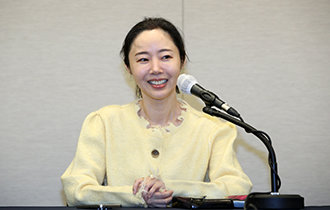Distressed Corporate Employees
An Employee or an Examinee?
Nowadays, Mr. A (age 31), who works in a large corporation, feels like he has returned to his school days. It is because closed circuit monitors hang on the front door and corridors are checking even his slightest motion.
Not only being late, but also smoking during working hours in corridors is monitored.
Mr. A told us frankly, Employers are overstraining themselves as a rumor that pictures of late employees are being reported to supervisors is spread. Their pleading is a new scene, saying Forgive me just this one time, when they are found.
A securities firm in Yeouido Seoul, arranged a person from the personnel department to stand in the front door and made him check employees identification tag, dress and hair, and then reflected the result in their ratings, but had to stop this due to employee resistance.
A home shopping business ranks the cleanliness of employee work environments among divisions every month and it informs the result after checking and evaluating them. The evaluation items are whether the atmosphere is pleasant, including clean desks, and whether waste bins are often emptied. The last-ranked division gets a direct scolding from the boss.
Mr. Park (age 31) in this company said, As the economic depression continues, rumors of staff reductions are all around. Everyone feels nervous about whether they could be treated unfavorably as a result of poor score on the cleaning check.
Extracurricular Activities Are also Restricted-
Mr. Lee (age 26) in a pharmaceutical company complained, Because the company gives its employees internal education which courteously prevents them from joining a labor union, newcomers are just trying to read the atmosphere and dare not join the labor union.
Does Food Cost so Much?-
Mr. Jung (age 26), in a venture company in Gangnam, Seoul, complains a lot.
His complaints arise from the fact that only the actual cost for meals has been paid now for two months, whereas 5,000 won for dinner had been paid before in any situation. Even for this, one should ask for a receipt every time, and any extra cost, subtracting 5,000 won, must be paid by the employee himself.
Mr. Lee (age 35), who works in an automotive parts company, said, Since last month, mobile phone subsidies and vehicle maintenance expenses were stopped, and reception expenses have changed from requiring the vice-presidents approval to requiring the presidents approval.
It is now common that sales of company products such as mobile phones and credit cards are forced on clerical employees.
An insurance company in Yeouido made its employees attract customer installment savings of 0.5 million won every three months last year, but it increased the amount to 3 million won this year.
Mr. Kim (age 27) in this company appealed, saying, Although I know the company is going through hard times, my regular work became neglected because of this forced allocation. There are many co-workers who make up for the allocated money as they cannot attract enough customers.
Professor Lee Jung-sik in the Labor Institute of Korea Digital University said, The extension of working hours through intervening in private lives, forcing early attendance and night work is an old-fashioned way of control, and pointed out, Employee labor intensity could be increased due to the five-day work a week system and the dull economy, but if it goes too far, efficiency could fall instead.







